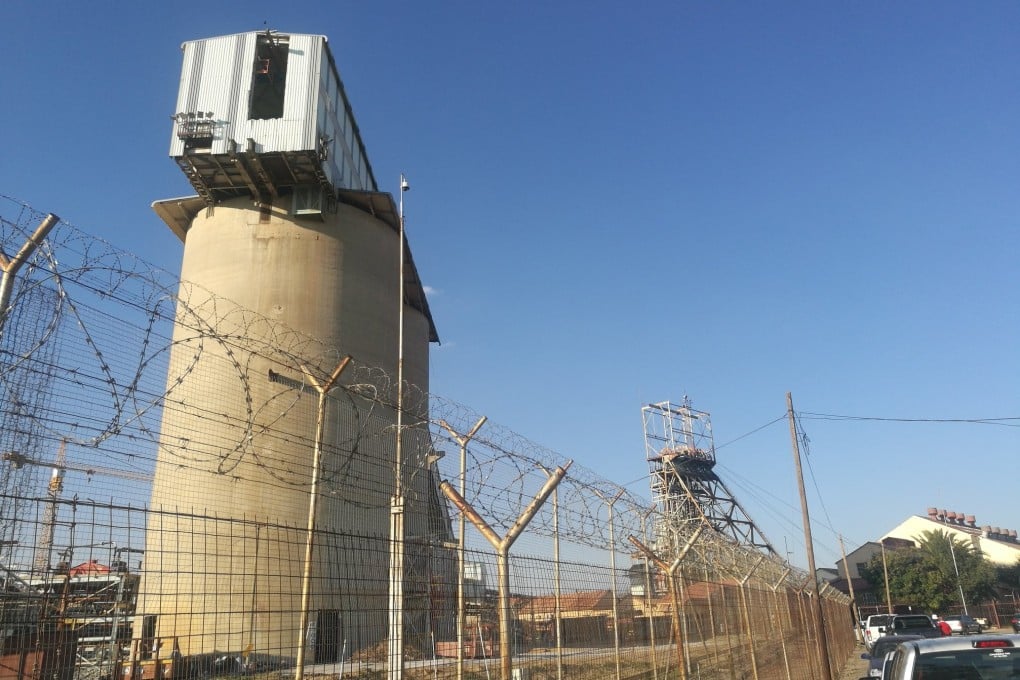Dozens of angry workers refuse to emerge from underground mine in South Africa after Chinese owners rescind pay increase offer
- Miners began their sit-in strike on Saturday at the Orkney No 7 shaft
- The mine is owned by China African Precious Metals

At Orkney, in South Africa’s North West province, gold miners are staging a sit-in strike nearly 3km underground against a wage decision made by the troubled mine’s Chinese owners.
The shock move by 69 disgruntled employees, including 14 women, has triggered the involvement of the National Union of Mineworkers (NUM) and two South African government departments.
The strike sit-in which began Saturday – one of the first and the largest of its kind – has thrown the mine-owners into a quandary.
Under South African law mine-owners are responsible for the health and safety of miners.
Senior union representatives have gone below to deal directly with the striking miners – so far to no avail.
The Orkney mineworkers are protesting what they describe as the “arrogant, brutal and exploitative” attitude of the Chinese mine-owners.
The mine is owned by China African Precious Metals (CAPM), with a Shanghai-based group holding the majority share.